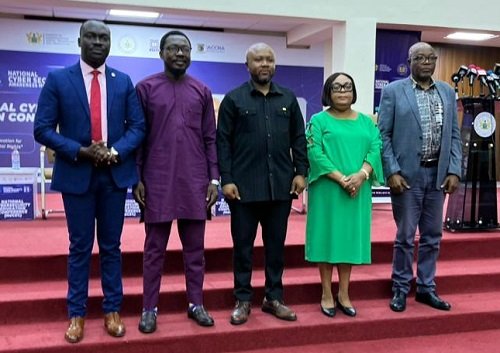News
Amnesty warns of a ‘lost Nigerian generation’
Rights group Amnesty International is warning that Nigeria must address more than 10 years of neglect of an entire generation of children in the country’s north-east.
The area has been severely affected by the Boko Haram insurgency.
In a 91-page report, the global watchdog said children living in Boko Haram-controlled areas were subjected to torture, floggings and sexual abuse.
While mostly accusing the Islamist militant group of atrocities, it also criticised the army.
It said the security forces held “children in conditions amounting to torture in military detention”.
Amnesty International highlighted a flawed reintegration programme for alleged former fighters known as Safe Corridor.
It receives funding from the European Union and other international donors.
Amnesty says that those in the programme have no access to legal representation, and are often held for extended periods.
The Nigeria military is yet to respond to allegations of torture and unlawful detention of children, in the report.
The UN Children’s Agency, UNICEF, says that between September 2017 and May 2019, it reported the release of more than 1,700 children after being cleared of links with jihadists.
Meanwhile, Amnesty International is calling on the Tunisian authorities to halt the prosecution of blogger Emna Chergui, whose trial is set to begin on Thursday.
The 27-year-old blogger is being prosecuted for sharing a satirical post about coronavirus on her social media account that looks like a verse from Islam’s holy book, the Koran.
If convicted, Ms Chergui could face a prison sentence of up to three years.
Imitating a Koranic text is considered a violation of something that is deemed to be sacred.
The image, which was reportedly designed and originally shared by an Algerian atheist who lives in France, contains text that says the virus came from China and tells people to wash their hands.
In a statement, Amnesty’s North Africa director Amna Guellali said the right to freedom of expression extended to what “some might consider shocking or offensive”.
She called on the Tunisian government to amend the law “so they are compliant with human rights”.
In early May, when the post was first shared during the fasting month of Ramadan and while the country was still largely under lockdown, it caused a stir online.
The head of one political party condemned it without naming her, saying the state had a duty to protect what was sacred in the same way it did to prohibit apostasy and incitement to hatred – but he called for a punishment other than imprisonment.
-BBC
News
CSA marks Cyber Security Awareness Month with maiden National Cybersecurity Education Conference in Accra

The Cyber Security Authority (CSA) has held the maiden National Cybersecurity Education Conference in Accra to promote cyber resilience and digital rights in Ghana’s education sector.
The conference, organised at the Ghana Tertiary Education Commission (GTEC) auditorium, formed part of activities to mark this year’s National Cyber Security Awareness Month, under the theme “Empowering Higher Education for Cyber Resilience and Digital Rights.”
Speaking at the event, the Acting Director-General of the CSA, Mr. Divine Selase Agbeti, said the theme reflects a shared national commitment by the Authority, the Ministry of Education, GTEC, and all tertiary institutions to build a secure and responsible digital future.
He explained that cybercrime is projected to reach $10.5 trillion globally by the end of 2025, making it one of the biggest economic threats in history. Meanwhile, there remains a shortfall of about four million cybersecurity professionals worldwide.
Mr. Agbeti said Ghana’s rapid digitalisation, where nearly 70 percent of the population relies on the internet for education, governance, and commerce has also increased exposure to cyber risks.
He noted that tertiary institutions have faced cyber incidents such as grade alteration, forged certificates, exam leakages, sextortion, and admission scams, which threaten student welfare and institutional credibility.
He revealed that the education sector has been designated as critical information infrastructure, and protecting it is essential to national security and development.
For that reason, he revealed that the CSA has prioritised education within Ghana’s National Cyber Resilience Strategy, guided by the Cybersecurity Act, 2020 (Act 1038) and the National Cybersecurity Policy and Strategy.
According to Mr. Agbeti, the CSA is working with GTEC and the Ministry of Education to integrate cybersecurity into teaching, learning, and institutional management.
“A draft Memorandum of Understanding (MoU) has been submitted to GTEC to formalise the development of a National Cybersecurity Competency and Qualification Framework, which will create a clear learning path from basic cyber literacy to advanced professional certification” he added.
He further announced that the Authority is collaborating with the Ministry of Education to establish an Education Sectoral Computer Emergency Response Team (EDU-SCERT) to coordinate responses to cyber incidents across universities and colleges.
Mr. Agbeti added that the CSA has reached over 5.6 million adults with cybersecurity awareness programmes between January and October 2025, compared to only 102,000 people reached in 2022, a sign of growing national awareness.
“Cybersecurity can no longer be limited to IT departments or computer labs. Every student, whether studying medicine, law, or business, should have basic knowledge of digital safety and responsibility,” he emphasised.
He commended GTEC, the Ministry of Education, and the Accra Technical University for partnering to organise the event, calling for the conference to become an annual platform for dialogue between academia, industry, and policymakers.
Delivering a keynote address on behalf of the Minister for Education, the Executive Director of CENDLOS, Prof. Diyawu Mumin, said the education sector faces an average of 2,507 cyberattacks weekly globally, making it one of the most targeted sectors worldwide.
He disclosed that between January and October 2025, Ghana’s National Cyber Security Emergency Response Team identified 505 leaked employee credentials and over 5,000 stealer logs belonging to educational institutions, many of which were available for sale on the dark web.
Prof. Mumin said the Ministry recognises that effective policy is the first line of defence in protecting the education system.
He mentioned that the Ministry, in collaboration with the CSA, GTEC, and other stakeholders, has reviewed Ghana’s ICT in Education Policy and EdTech Strategy to embed cybersecurity and digital safety across all levels of learning.
He encouraged GTEC to expedite the signing of the MoU with the CSA to start implementing the cybersecurity competency framework, adding that cybersecurity should be a general course across all disciplines, not just in IT.
“Our vision is for every student, regardless of discipline, to graduate with a grounding in cybersecurity and digital ethics. Universities must treat cybersecurity as a matter of governance and national security, not merely a technical subject,” he stated.
Prof. Mumin also confirmed that the Ministry is working with the CSA to establish an Education Sector Computer Emergency Response Team, which will detect, coordinate, and respond to cyber incidents in the education ecosystem.
He called for urgent action against admission scams, sextortion, cyberbullying, and certificate forgery, which he said threaten trust in Ghana’s educational institutions.
The Director-General of the Ghana Tertiary Education Commission (GTEC), Prof. Ahmed Jinapor Abdulai, in his remarks, said safeguarding Ghana’s digital future must begin from the classroom, the laboratory, and the lecture hall.
He described the theme as visionary and relevant, noting that while digital transformation has improved teaching and research, it has also exposed institutions to cyber threats that can cripple systems and compromise data.
Prof. Jinapor said cybersecurity is no longer the sole responsibility of IT departments but a civic and educational duty that demands ethical reflection and institutional leadership.
He revealed that GTEC is integrating cybersecurity awareness into quality assurance frameworks, programme accreditation, and institutional audits, and reaffirmed the Commission’s partnership with the CSA to make cybersecurity education a national priority.
“Universities and colleges must produce not only employable graduates but resilient ones. individuals who understand the value of information, the sanctity of privacy, and the ethical use of technology,” he said.
He added that GTEC would continue to encourage curriculum reforms to ensure that cybersecurity education cuts across all disciplines and institutions.
Prof. Jinapor urged tertiary institutions to allocate resources for digital security, train staff and students to recognise risks, and adopt robust response systems, stressing that cyber resilience will soon define institutional credibility just as accreditation defines academic standards.
He concluded that Ghana’s youthful population and expanding tertiary sector give the country a unique opportunity to become a continental leader in cybersecurity education and policy innovation.
By: Jacob Aggrey
News
Suspension on professional Boxing to be lifted on November 6 – NSA

The National Sports Authority (NSA) has announced that the suspension on professional boxing in Ghana will officially be lifted on Thursday, November 6, 2025.
This follows months of consultations between the Ministry of Sports and Recreation and the Interim Management Committee (IMC) responsible for overseeing reforms in the sport.
According to the NSA, significant progress has been made in addressing the key concerns that led to the suspension, including improvements in medical and safety protocols, governance, and administrative structures.
The Authority said these reforms mark a major step toward reviving Ghana’s rich boxing heritage and ensuring the safety and well-being of athletes.
Some of the new measures include the publication of medical and safety manuals, the establishment of a functional Interim Medical Commission, a centralized medical database, an approved insurance framework, and the certification of ringside and medical staff.
The NSA commended the IMC, athletes, and all stakeholders for their patience and cooperation throughout the reform process.
It added that the new systems will make Ghanaian boxing more credible, safe, and internationally respected.
The Authority called on local and international promoters to bring global bouts and collaborations to Ghana under the enhanced standards.
In the coming weeks, the NSA will roll out educational programs and new partnerships aimed at improving the welfare of Ghanaian boxers and promoting the sport’s growth.
The Authority reaffirmed its commitment to working with all partners to ensure a safe, professional, and sustainable future for Ghanaian boxing.
By: Jacob Aggrey






